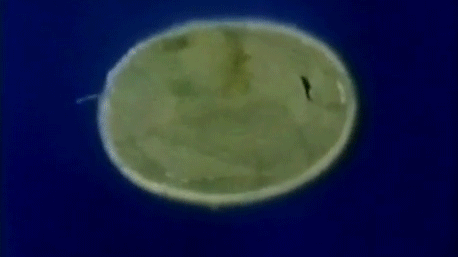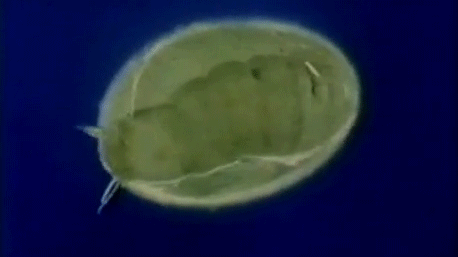Summary
Cat flea eggs aren’t hard. They’re somewhat soft and squishy when squeezed. The chorion (outer membrane or shell) is porous and thin, with a gel-like, amorphous structure Img 1. Flea eggs are more fragile than eggs of other insects.
Details
Flea Egg Chorion
Flea egg chorions are thin, porous, gelatinous and amorphous. The outer membrane appears as a single layer, but it’s actually composed of four distinct layers. Together, these layers are 2520 nm thick. The 3rd and 4th layers combine into a porous meshwork of air-filled cavities which allows for respiration with outside air.

Img 1 Flea larva moving inside it’s egg before hatching. The egg’s thin, flexible shell can clearly be seen.
Cat flea eggs are smooth. They lack the distinctive patterns or structures found on most insect eggs, including other fleas.
Spumaline
When an egg is laid, a substance from the female flea, called spumaline, covers the chorion. As the spumaline dries, it hardens into a cement-like material on the egg’s surface. It may serve a protective coating, or it may function to prevent water loss, as flea eggs don’t have a waxy coating like other insect eggs.
Flea Eggs are Fragile
Cat flea eggs are more fragile than eggs of other insects. The chorions can dimple or collapse. This is especially true when females lay non-viable eggs, often as a result of being virgins or being exposed to certain insecticides.





You must log in to post a comment. Log in now.